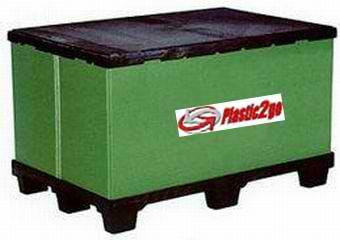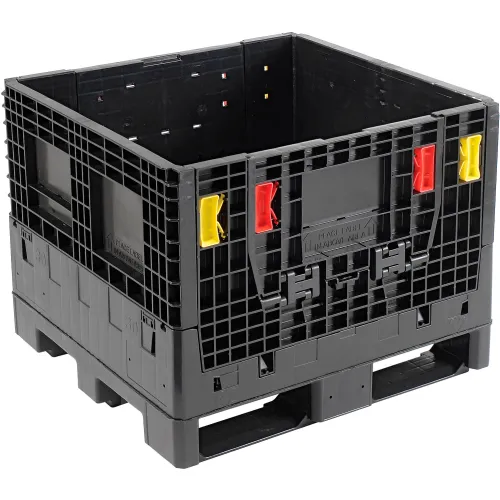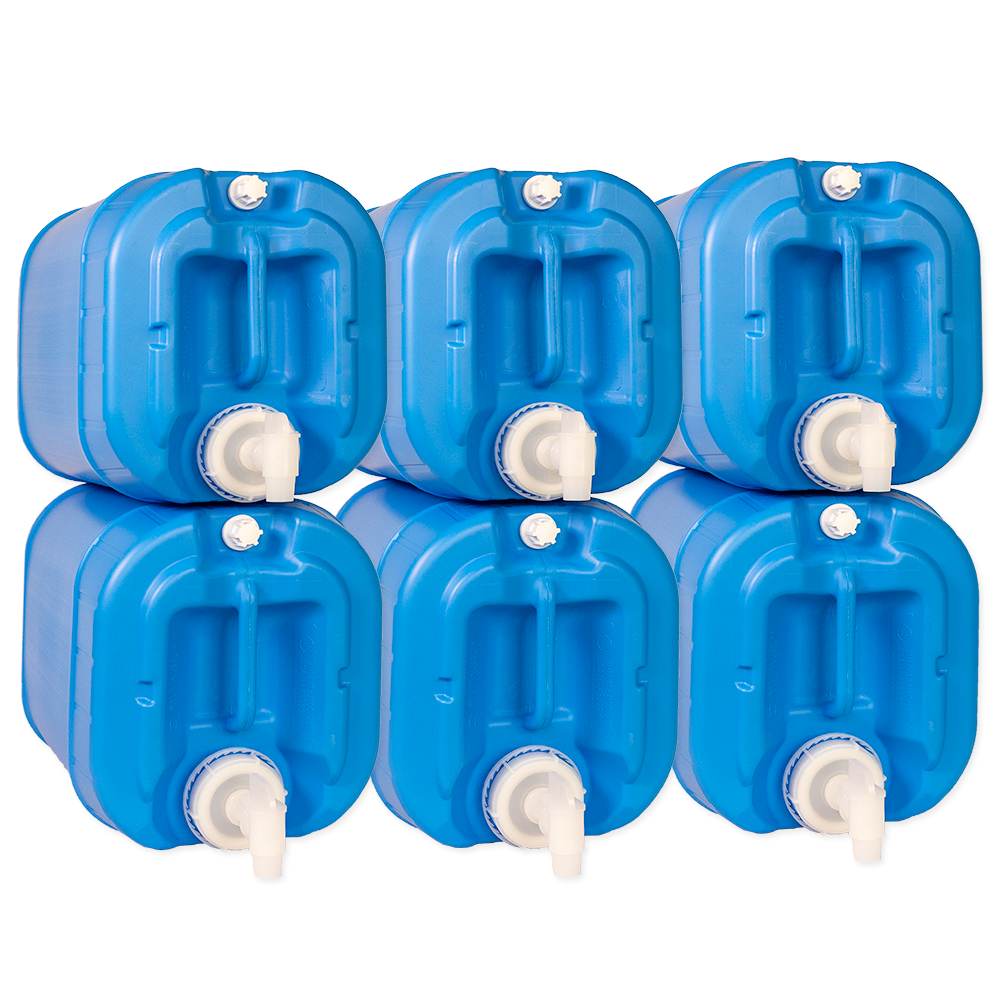All Concerning Bulk Plastic Containers: Benefits, Applications, and Sector Insights
Mass plastic containers play a significant role in various industries, providing advantages that enhance efficiency and sustainability. Their lightweight nature minimizes delivery costs, while their durability assurances secure storage space and transport of varied items. As firms significantly look for environment-friendly services, the need for these containers is growing. This raises vital concerns regarding the products used and the patterns influencing their style. What implications do these elements have for the future of mass plastic containers?
Advantages of Mass Plastic Containers
Mass plastic containers supply a plethora of advantages in numerous sectors. Their light-weight layout significantly reduces transportation expenses, enabling efficient logistics and easier handling. In addition, these containers offer durability and resistance to weather aspects, chemicals, and physical effect, making certain the secure storage space and transportation of items. The convenience of bulk plastic containers enables them to be formed right into numerous shapes and dimensions, dealing with specific industry demands.

Typical Applications Throughout Industries
While various industries use bulk plastic containers, their applications are specifically noticeable in markets such as food and beverage, drugs, farming, and manufacturing. In the food and beverage industry, these containers are vital for keeping and moving products like grains, fluids, and prepared meals, guaranteeing quality and safety and security. The pharmaceutical market relies upon bulk plastic containers for safe and secure storage of medications and vaccinations, keeping conformity with strict laws.
In agriculture, these containers help with effective handling and transportation of produce, plant foods, and chemicals, while also supporting lasting methods via recyclability. Production markets use bulk plastic containers for parts storage and production line procedures, promoting organization and workflow efficiency. Furthermore, these containers serve a considerable role in logistics and supply chain management, simplifying the movement of goods throughout various industries. In general, the flexibility of mass plastic containers makes them indispensable throughout multiple markets.
Material and Style Factors To Consider
When picking mass plastic containers, product and layout considerations play a crucial role in guaranteeing capability and compliance with market criteria. The option of product greatly influences the container's toughness, weight capacity, and resistance to environmental variables. Common materials consist of high-density polyethylene (HDPE) and polypropylene, recognized for their strength and chemical resistance.
Design aspects, such as closure, size, and form devices, likewise influence functionality. Containers with ergonomic manages and stackable designs boost storage space efficiency and ease of transport. check over here Additionally, features like airing vent or drain openings might be required for certain applications, enabling air flow or fluid removal.
Conformity with security regulations, such as FDA authorizations for food-grade applications, is crucial. plastic bulk containers. Overall, careful factor to consider of materials and style can maximize performance and longevity, making certain that mass plastic containers fulfill the varied demands of numerous sectors efficiently
Trends wholesale Plastic Container Use
As markets progress, the use of bulk plastic containers is increasingly influenced by sustainability and effectiveness. Companies are going with environment-friendly materials, such as recycled plastics, to decrease environmental impact while keeping longevity. This change is driven by consumer need for governing pressures and sustainable techniques targeted at reducing plastic waste.
The pattern toward automation in logistics and supply chain management is improving container styles. Mass containers are now being engineered for compatibility with automated systems, enhancing functional performance. Light-weight layouts are also obtaining traction, as they lower shipping prices and power intake throughout transport.
In enhancement, customization is coming to be a prime focus, allowing businesses to customize containers to certain requirements, therefore enhancing space and capability. These fads reflect a more comprehensive commitment to sustainability, advancement, and effectiveness within various sectors, guaranteeing that mass plastic containers proceed to play a critical role in modern-day supply chains.
Best Practices for Storage and Transport
Reliable storage space and transport of bulk plastic containers call for adherence to best practices that boost safety and performance. Containers need to be stacked firmly, ensuring that weight is evenly dispersed to avoid tipping or damage. Making use of pallets can facilitate easier activity and secure the containers from ground wetness. In addition, appropriate labeling is important for quick recognition and tracking during transit.
Temperature level control is another vital element; extremes can jeopardize the honesty of the materials. It is recommended to keep containers in a climate-controlled setting when necessary. For transportation, selecting ideal lorries developed for mass tons warranties security and minimizes threat during transportation.
Regular assessments of containers prior to storage space and transportation aid recognize any wear or damage, enabling timely upkeep or replacement. By complying with these best practices, organizations can optimize the lifecycle of mass plastic containers while maintaining functional effectiveness.
Often Asked Concerns

Are Bulk Plastic Containers Recyclable After Use?
Yes, bulk plastic containers are additional info typically recyclable after use. Nonetheless, recyclability depends upon the material kind and local recycling programs. Appropriate cleansing and sorting are necessary to assure they are approved by reusing centers.

What Is the Life-span of Mass Plastic Containers?
The life-span of bulk plastic containers typically ranges from 5 to 10 years, depending upon use conditions, worldly top quality, and environmental elements. plastic bulk containers. Proper maintenance can extend their durability, making them a durable storage click over here now space service
Can Mass Plastic Containers Be Customized?
Yes, bulk plastic containers can be tailored. Producers typically use alternatives for size, shade, product, and branding, enabling services to tailor containers to their details requirements and enhance their product discussion and performance.
How Do Mass Plastic Containers Contrast in Expense to Alternatives?
Mass plastic containers typically use a lower expense compared to alternatives like metal or glass, due to their lightweight nature and toughness. This makes them an affordable option for organizations requiring reliable storage space solutions.
Are There Security Rules for Making Use Of Bulk Plastic Containers?

Bulk plastic containers play a considerable function in various sectors, using advantages that boost efficiency and sustainability. While different markets use bulk plastic containers, their applications are specifically prominent in markets such as food and drink, drugs, farming, and manufacturing. Production sectors use bulk plastic containers for parts storage space and setting up line procedures, promoting company and process effectiveness. When selecting mass plastic containers, product and style factors to consider play a vital duty in guaranteeing capability and conformity with sector requirements. As sectors evolve, the use of bulk plastic containers is significantly influenced by sustainability and performance.